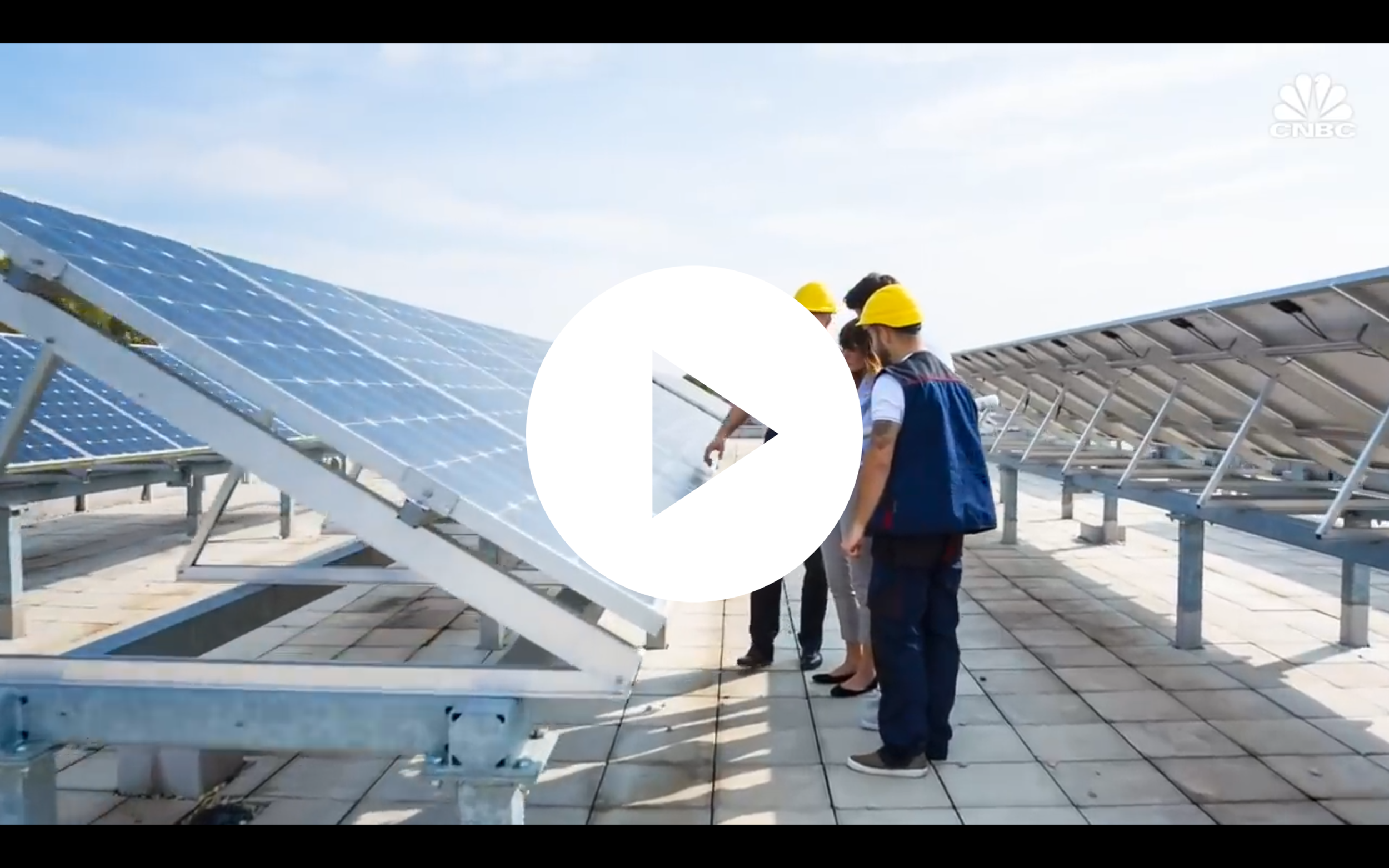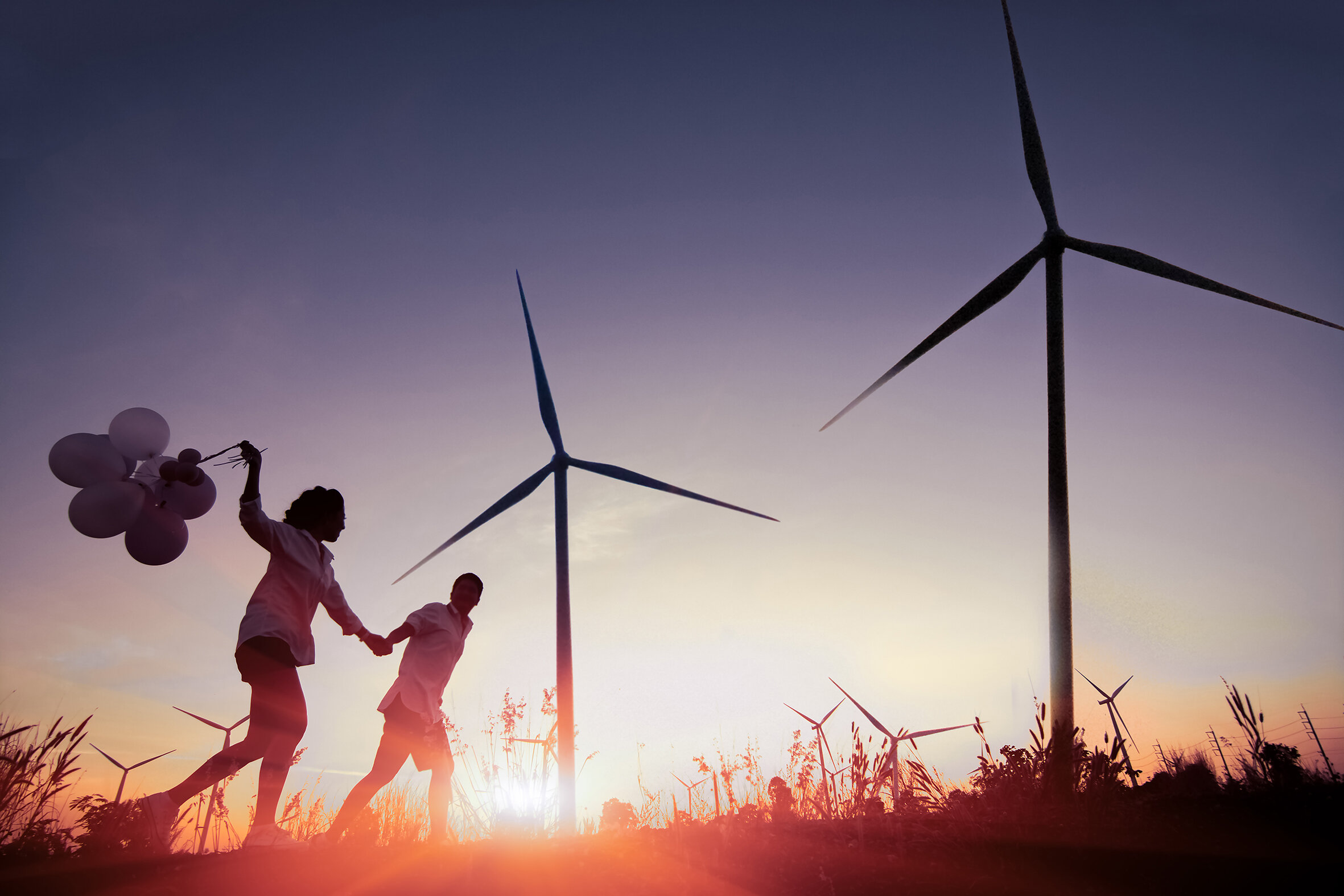
A New Vision
Over the past 10 years, the energy sector has been totally disrupted. The world is now moving into an era of renewable and smart energy. In contrast, Lebanon’s energy model still relies on heavy fuel oil plants and diesel generators. The country imports 97% of its energy, all of which is fossil fuel.
Advantages of Renewable Energy
The country’s current energy policy has become unsustainable, both economically and environmentally. Yet the current energy crisis offers Lebanon a unique opportunity to embrace a new energy model and to leapfrog into the Green Energy Revolution.
We must rapidly reconsider how we produce, deliver and consume energy and develop a new energy model that leverages Lebanon’s 300 sunny days a year, wind potential and water resources. While we aim to provide 24/24 electricity, we must also protect public health and the environment and develop an important local energy industry.
LFRE’s vision aims to capture these opportunities in order to build a brighter future, create new jobs, promote economic development and improve the value proposition to customers.
Check our report here.
Our Solutions
To do so, we must address our energy challenges in innovative ways in order to revolutionize our current energy production system and fully benefit from technological progress and the rapid cost reduction in renewable energy and storage.
Power Industry Tomorrow
The Green Revolution
Strategic Priorities
A study conducted by LFRE, Strategy& and AUB for Lebanon, puts renewable energy on top in every single metric, from cost and respect of the environment to social and economic impact to energy security and reliability.
Source: Strategy& / AUB / LFRE
Cheapest Energy Source
Source: Strategy& / AUB / LFRE
Solar, wind and hydro are by far the cheapest sources of energy available currently around the world. In Lebanon, green energy production is now four to five times cheaper than electricity produced by our current operated heavy-fuel power plants and two to three times less than gas powered plants (CCGT).
A recent AUB/LFRE study on a potential 300 MW solar plant in Tfail, in the Bekaa, estimates the cost of producing electricity there at 4.2 to 5.3 cents/kWh. Recent solar tenders by the Ministry of Energy awarded small 15 MW plants at 5.7 cent/kWh. By comparison gas-fired power plants are expected to cost an estimated 9 cents/kWh as per McKinsey’s 2018 Lebanon Economic Vision report.
As a result, adopting a 50% renewable energy target by 2030, will reduce the levelized Cost of Energy (LCOE) by close to 20 cents/kWh. Compared with the current 35 cents/kWh cost, a decrease of close to 58%.
Local Development
Sustainable energy will create thousands of jobs and contribute to the economic development of some of the poorest areas in Lebanon, home to sites with high potential for wind and solar production. Two out of three jobs created will be located in underdeveloped regions such as Hermel, Ras Baalback, Akkar, Tfail and Qaa as well as regions in the south, the Chouf, Aqoura, Rachaya and Taraya. When operational, such projects will stimulate the economic activity in these regions.
A Game Changer
Lebanon’s large scale adoption of green energy will be an important stepping stone for rebuilding a sustainable economy based on a renewed respect for our environment and a better quality of life for our citizens.
It can transition towards having 30% of the country’s electricity by 2024-25 and 50% by 2030 produced by green energy.
By 2040-50, as storing energy becomes competitive, Lebanon, as many countries, must aim to substantially decarbonize its energy sourcing.

Our Plan
By leveraging the country’s huge potential for solar, wind, hydro and pumped hydro storage, we can turn green energy into our primary source of power. Gas operated plants should therefore be built as a base load, only to be used when renewables are unavailable.
Our plan rapidly ramps up the construction of wind and solar plants, upgrades our hydro production and builds new run-on-river hydro plants as per the government’s plan.
In contrast, the number of CCGT coastal plants will be reduced to three sites only, as recommended by McKinsey. They will be located in Zahrani, Deir Aamar and Selaata or Zouk. All other plants will be replaced by new green energy capacity located inland.
Source: LFRE
Benefits
Economic Impact
Cost reduction, hard currency saving, increased speed and local value add growth.
Social Impact
Positive impact on jobs creation in remote areas and regional economic development.
Health and Environment
Protecting the environment, the reduction in air and sea pollution and reducing negative health impact.
Clean Transportation
Introduction of electrical vehicles, reduction of air pollution and the decrease in the national fuel import bill.












